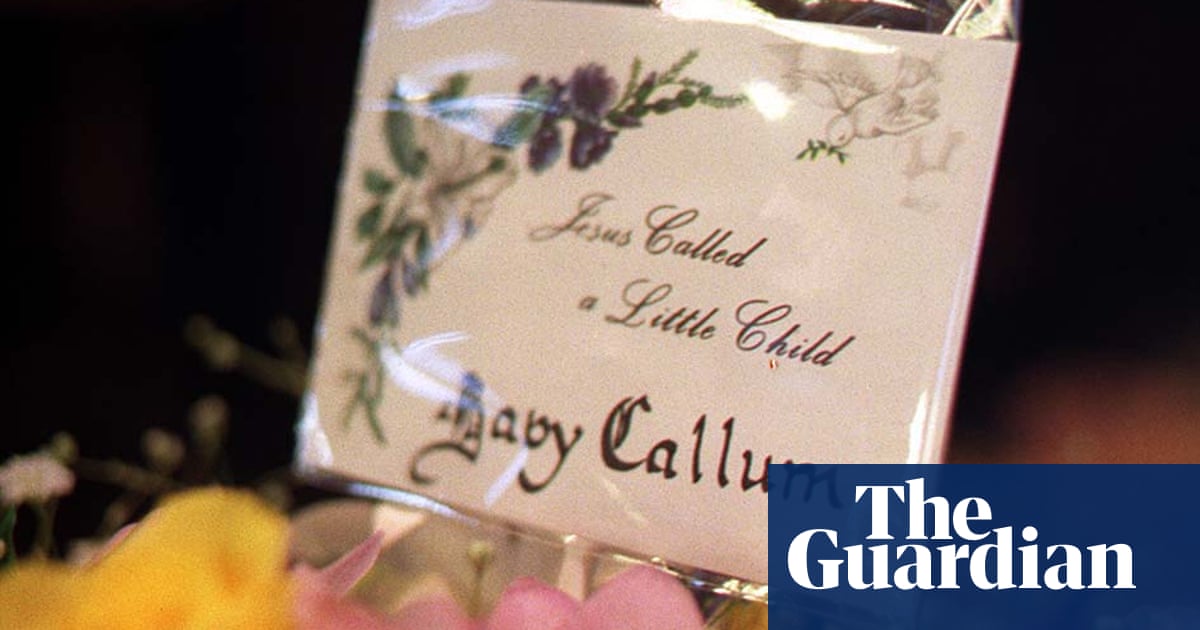
The former manager of a prison mother-and-baby unit warned just months before the stillbirth of a baby there that such a tragedy was likely to happen because of concerns about conditions for pregnant women at the prison, the Guardian has learned.
Tamsin Morris, a lawyer, who previously managed the mother-and-baby unit at Styal Prison in Wilmslow, Cheshire, wrote to the MP for the area, Esther McVey, to the Ministry of Justice and to the mayor of Manchester, Andy Burnham, in February of this year, raising concerns about conditions for pregnant women at the prison in the wake of the stillbirth of a baby at HMP Bronzefield last September.
She warned that a similar tragedy could happen at Styal. Last month, four months after Morris issued her warning, a baby was stillborn at Styal.
Morris has decided to whistleblow at a time when publication of a government review of maternity services is imminent. There are 13 separate investigations or reviews into the two stillbirths. There are 11 separate investigations under way into the HMP Bronzefield stillbirth and publication is thought to be some way off. An internal investigation and an investigation by the prisons ombudsman is under way into the stillbirth at HMP Styal. The timescale for those investigations is not known.
A range of concerns have been raised by former prisoners who have been pregnant behind bars, former staff such as Morris, academics and the charity Birth Companions, a charity specialising in supporting pregnant women and new mothers in prison.
Concerns include:
Failure to record the total number of women who are pregnant in prison
adequate termination services not always available
adequate antenatal care not always available
pregnancy testing not comprehensive enough.
Naomi Delap, director of Birth Companions, said: “We know there are significant gaps between what’s set out in policy and what happens in practice across the estate. Reports of incomplete abortions, of traumatic births, miscarriages and stillbirths, flawed approaches to pregnancy testing and problems identifying pregnant women make clear that the system is, in many cases, failing to deliver appropriate and safe care to some of the most vulnerable, despite the best efforts of many staff. This needs to change.”
Morris, who is no longer at the prison and now works for a domestic violence charity, is speaking out because of her continuing concerns about the safety and welfare of this vulnerable group within the prison system.
While Morris was running the mother-and-baby unit (MBU) at Styal the nursery there was ranked as “good”. But previously Ofsted took enforcement action against the unit because it found there were “serious breaches in requirements”.
Morris’s concerns relate to a variety of issues. Her concerns led to an internal investigation at the prison in February of this year that found the MBU is providing “a good quality of care”.
She said that pregnancy tests are only offered on arrival in prison and that there is no field on the prison database to record who is pregnant.
In the case of the woman who had a stillbirth at Styal she is understood to have declined a pregnancy test on arrival at the prison because she did not believe she could be pregnant.
After Morris raised concerns with Esther McVey, the prisons minister, Lucy Frazer, wrote to McVey on 27 April. Frazer said: “Obtaining accurate numbers of pregnant women is a concern not just at Styal but other establishments as pregnancy is a confidential matter that women may not consent to being disclosed to operational prison staff.”
Morris highlighted two specific cases she says she raised concerns about while working at Styal. One relates to a woman who was pregnant and chose to terminate her pregnancy at an early-enough point that medication can be given in two stages. She claims this woman was given “half an abortion”.
She says the woman was taken to Liverpool where she was given the first dose of medication to end the pregnancy but was not taken back for the second dose a week later to complete the abortion, and so effectively was left having had “half an abortion”. She had to have a surgical abortion at a later stage in the pregnancy.
The second relates to a lack of privacy for a teenager who gave birth at a local hospital close to Styal because male prison guards were present.
The mother of the teenager told the Guardian that both she and her daughter were concerned that there were male prison officers in the room at the hospital during the labour.
She added that she was told by prison guards that she could not buy her daughter a sandwich from the hospital as it might be used to smuggle drugs.
Prison service sources confirmed that male staff are sometimes asked to provide prisoner escorts to hospitals but said they will always have a female officer present with them. The sources also confirmed prisoners are not allowed to receive food from visitors in hospital to prevent contraband being smuggled into prisons. The sources said they did not have enough details about both of the specific cases to respond further.
A prison service spokesperson said: “We have thoroughly investigated all the accusations for which we have been provided details and found no evidence to support them. In fact, prison inspectors and Ofsted have both reported that Styal’s Mother and Baby Unit provides good care to its residents. We continue to improve the way we support pregnant women in our care and will publish our review shortly.”












